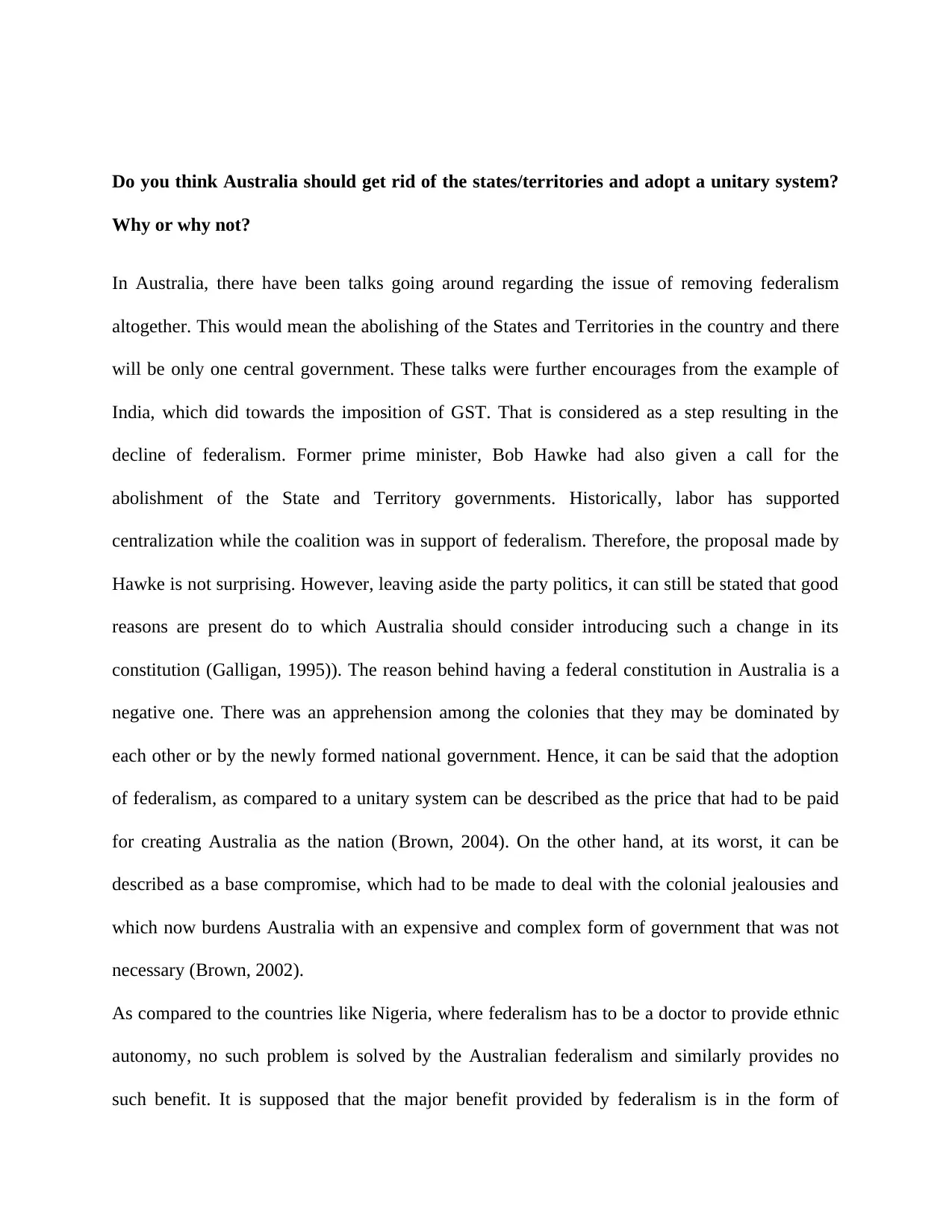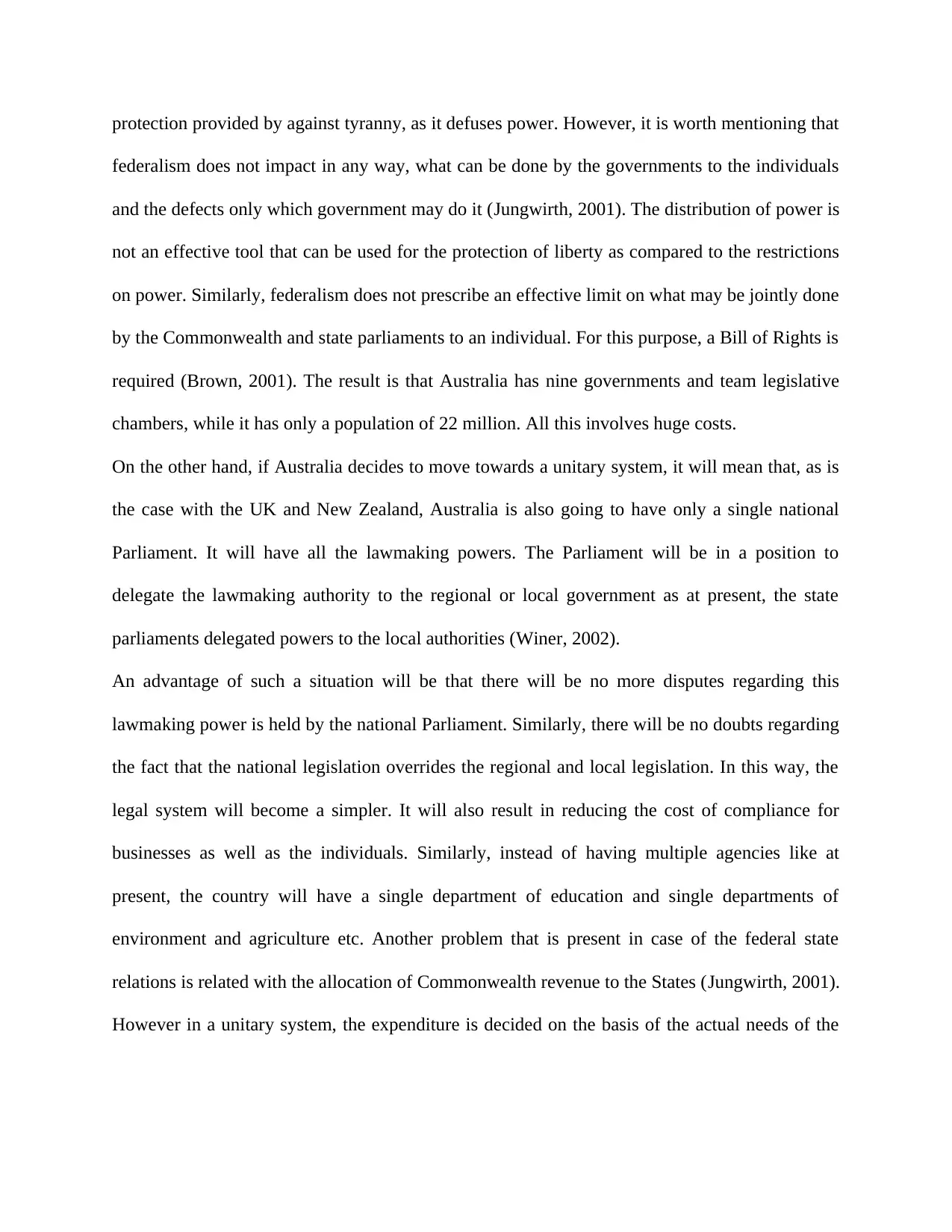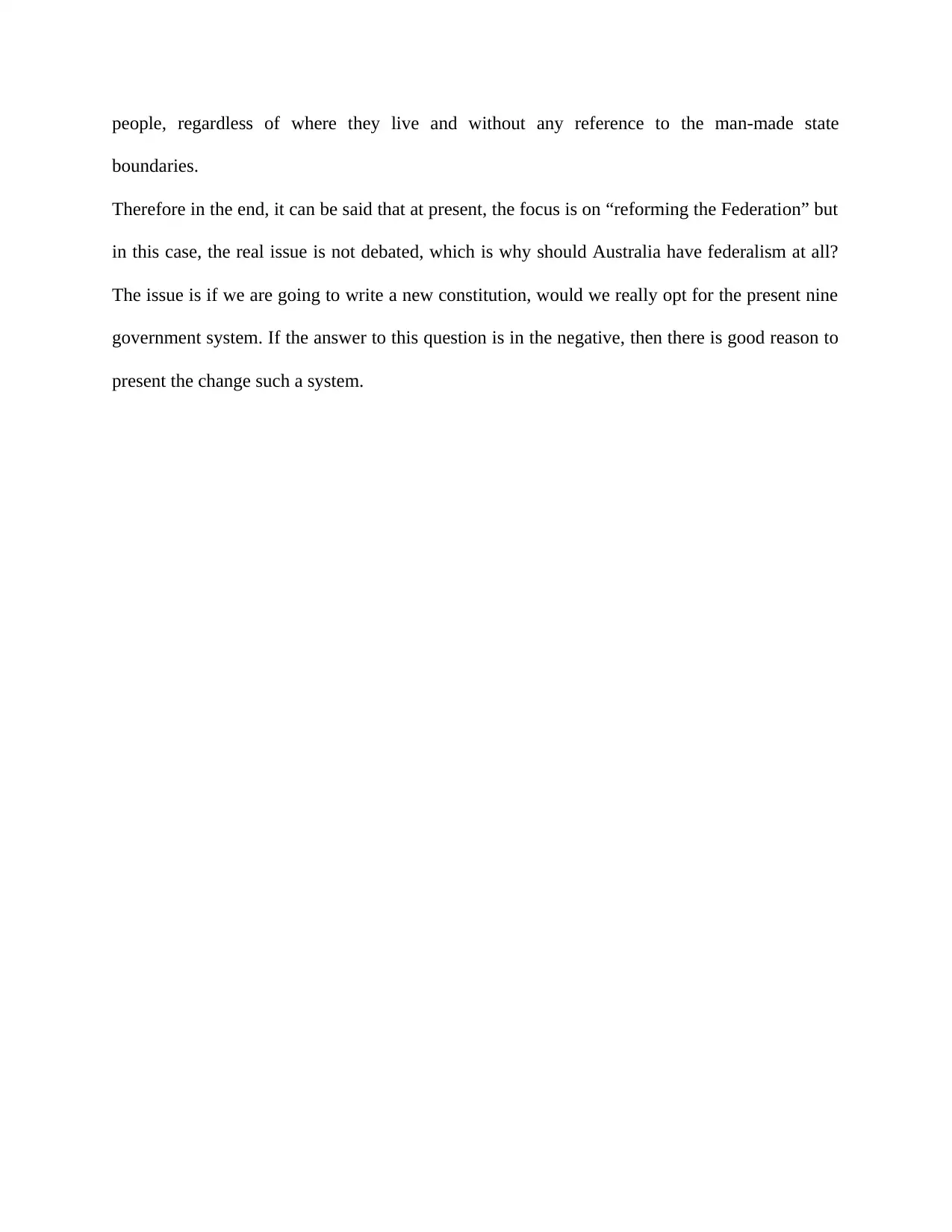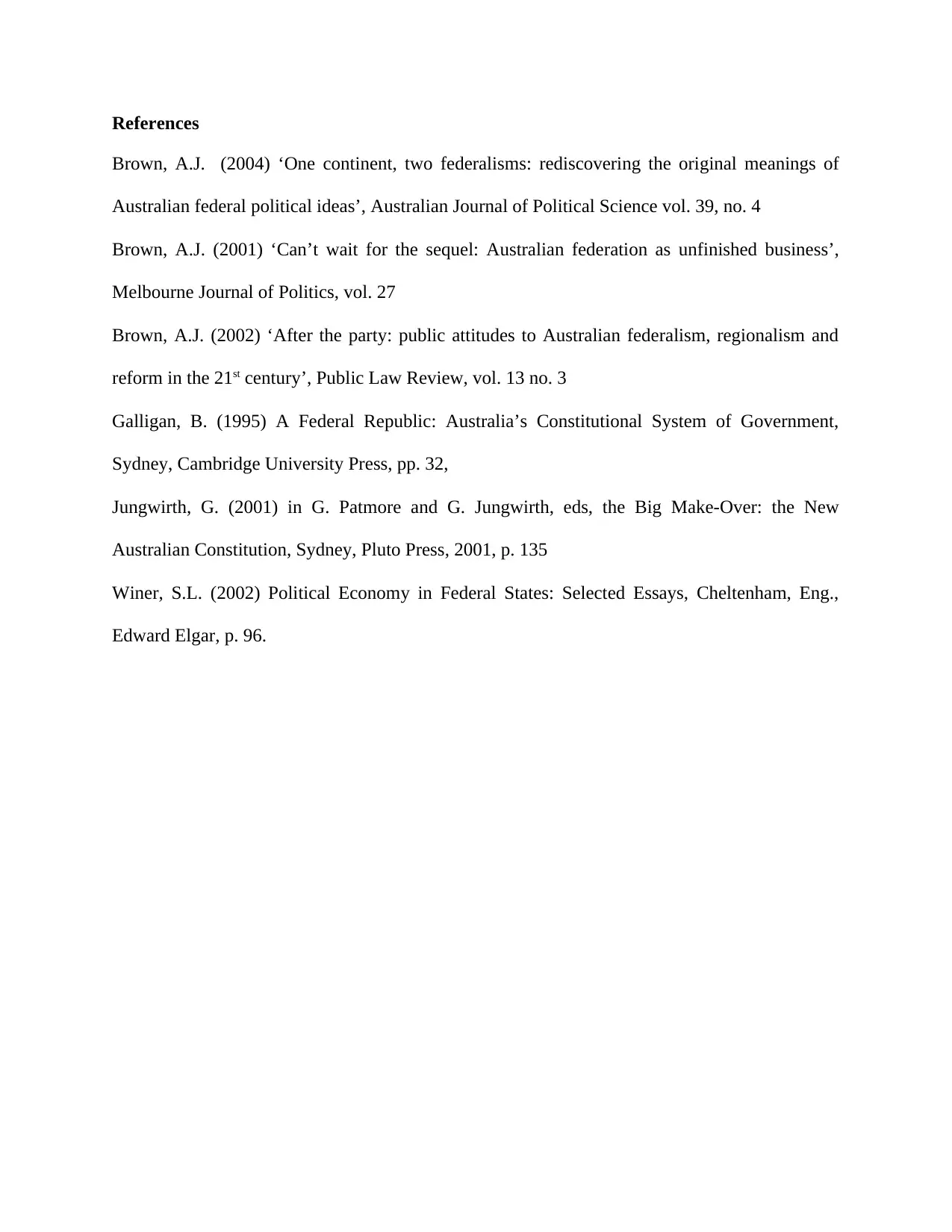Should Australia Abolish States?
VerifiedAdded on 2020/03/04
|4
|1050
|50
AI Summary
This assignment examines the debate surrounding the potential abolition of Australia's state and territory governments in favor of a unitary system. It analyzes historical context, the arguments put forward by both sides (Labor and Coalition), and the potential benefits and drawbacks of such a change, including cost savings, streamlined governance, and the allocation of Commonwealth revenue.
Contribute Materials
Your contribution can guide someone’s learning journey. Share your
documents today.
1 out of 4










![[object Object]](/_next/static/media/star-bottom.7253800d.svg)